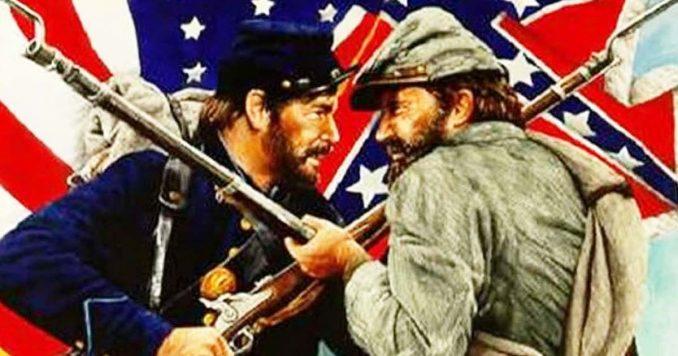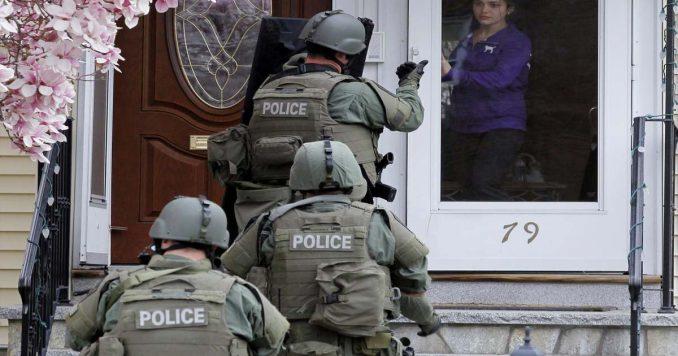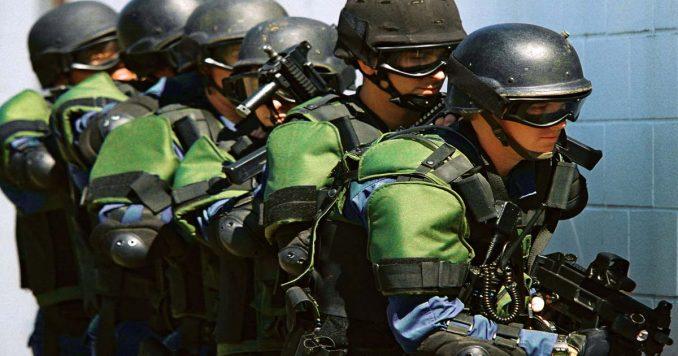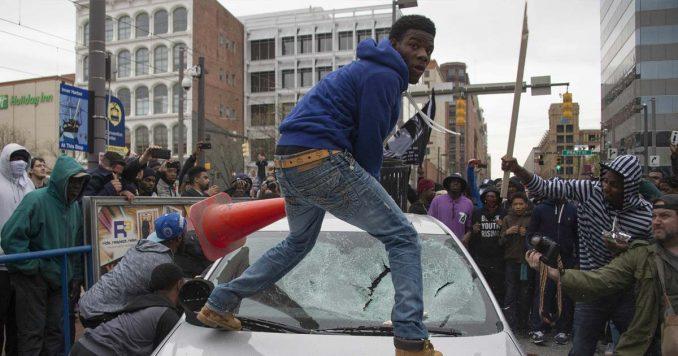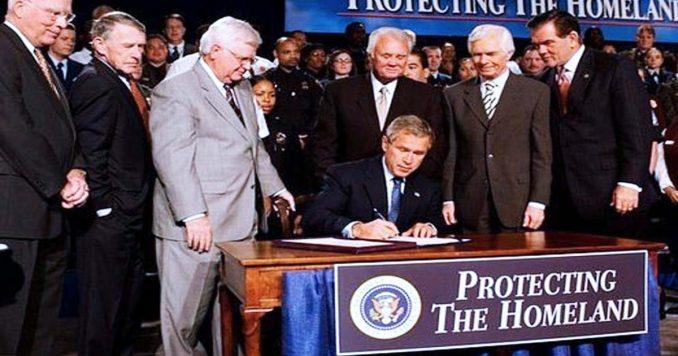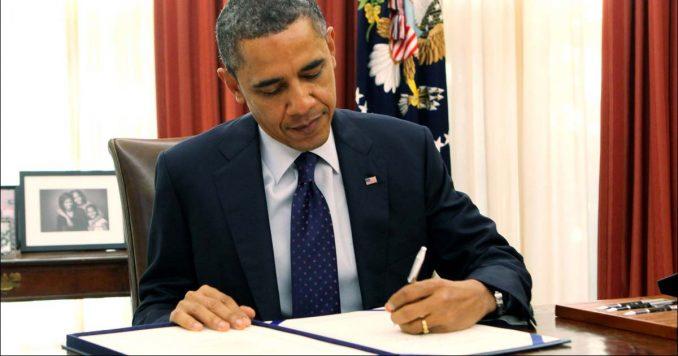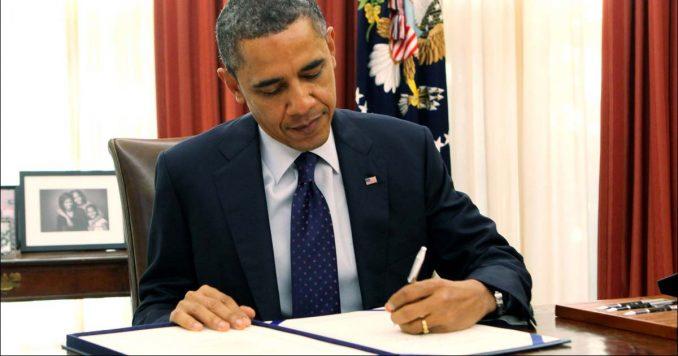Authored by Robert Richardson via OffGridSurvival.com,
The march towards martial law is something that is often ignored by the general public, often labeled as Quackery or something belonging on conspiracy websites. But what’s happening in this country is exactly what our founders warned us about, and martial law is something they took very, very seriously.
What is martial law?
If you’re looking for a definition, then Martial Law basically means using state or national military force to enforce the will of the government on the people.
Under a declaration of martial law, Constitutional freedoms and liberties are suspended, and civilians are no longer entitled to their civil rights. It basically allows the government, or a tyrannical politician, to shred the Constitution and impose its will through military force.
History of Martial Law in the United States of America
“Those that fail to learn from history, are doomed to repeat it.”
- Winston Churchill
In one way or another, there have always been tyrants who have used the power of government to suppress and control the public. But if we are looking for specific examples of Martial Law being used inside the United States, we don’t have to look very hard or far to find them.
Using the strictest definition of the term, we can see the roots of martial law in America take hold during the lead up to the Revolutionary war. Although there were many reasons for the war, including resistance to taxes imposed by the British parliament, the main catalyst was England’s decision to use military troops to enforce everyday law throughout the colonies.
The beginning of the end? The Civil War Ushers in a Strong Central Government through Martial Law Enforcement
Flash forward a hundred years, and many of the most egregious examples of martial law can be found throughout the civil war. While today’s history books largely ignore the real reasons for the war or the many atrocities committed by President Lincoln, the facts of what really happened cannot be disputed.
The reason we have lost so many of our liberties can be tied directly to the civil war.
On September 15, 1863, President Lincoln imposed Congressionally-authorized martial law. While history contends the war was fought to end slavery, the truth is, Lincoln by his own admission never really cared about freeing slaves. In fact, Lincoln never intended to abolish slavery, his main interest was centralizing government power and using the federal government to exert complete control over all citizens. The abolishment of slavery was only a byproduct of the war. It actually took the 13th amendment to end slavery, since Lincoln actually only freed Southern slaves, not slaves in states loyal to the Union.
During the Civil War, Lincoln continually violated the Constitution, in some cases suspending the entire Constitution that he swore to uphold.
-
He suspended the writ of Habeas Corpus without the consent of congress.
-
He shut down newspapers whose writers displayed any dissent to Union policy or spoke out against him.
-
He raised troops without the consent of Congress.
-
He closed courts by force.
-
He even imprisoned citizens, newspaper owners,and elected officials without cause and without a trial.
Our founders were very wary of using the military to enforce public policy, and concerns about this type of abuse date back to, and largely influenced, the creation of the Constitution. The founders continually warned about using military force to uphold law and order; unfortunately, most Americans are rather ignorant of history and are even more ignorant to what our founders intended when they created the Constitution and the Bill of Rights.
What will happen under Martial law?
The actual words martial law will probably never be used.
The first thing you will likely see is a declaration of a “State of Emergency”. This may be done nationally, in cases of war or a large-scale terrorist attacks; or it may happen locally, as witnessed in the wake of Hurricane Katrina.
In August of 2005, New Orleans was declared a disaster area and a state of emergency was declared by the governor. This allowed state officials to order evacuations and forcefully remove residents from their homes, suspend certain laws, confiscate firearms, and suspend the sale of items like liquor, firearms, and ammunition.
In the aftermath of Hurricane Katrina, New Orleans police, the U.S. Marshals office, and the Louisiana National Guard forcibly confiscated over 1,000 legal firearms from law-abiding citizens.
Depending on the reasons behind the declaration you may also see:
-
The suspension of the Constitution, probably starting with the first and second amendment.
-
Confiscation of firearms; it has happened and it will happen again.
-
Suspension of Habeas corpus: Imprisonment without due process and without a trial.
-
Travel Restrictions, including road closures and possibly, even quarantine zones.
-
Mandatory Curfews and Mandatory Identification.
-
Automatic search and seizures without a warrant.
When can Martial Law be enacted?
When Martial Law can be enacted is a pretty touchy subject, largely because our founders never intended the federal government or a standing army be permitted to take such actions. Unfortunately, most people accept these unconstitutional activities and are more than willing to give up their essential liberties in exchange for peace of mind and not having to think for themselves.
This is something Benjamin Franklin warned about when he famously wrote,
“Those who would give up essential Liberty, to purchase a little temporary Safety, deserve neither Liberty nor Safety.”
How likely is martial law in the United States?
Let’s face it, this country is a ticking time bomb. From widespread social unrest, crime, and violence to a growing national debt which includes an entire subset of our population that depends on government assistance to exist, the writing is on the wall: Trouble is Coming.
In my opinion, we are already under a form of martial law. The founders never intended standing armies policing the citizens of the United States; sadly that is exactly what we have.
Drones, armored vehicles with high power weapons, tanks, and battlefield helicopters are no longer something that you see on some foreign battlefield; it’s now standard operating procedure at police stations throughout the country. Our federal government has poured billions of dollars into militarizing and taking over our country’s local police forces, in what can only be described as a domestic military force or standing army meant to enforce federal law.
President Bush Expands Martial Law Authority
On September 29, 2006, President George W. Bush signed the John Warner National Defense Authorization Act (NDAA) for Fiscal Year 2007 (H.R. 5122). The law expanded the President’s authority to declare Martial Law under revisions to the Insurrection Act and actually allowed the President to take charge of National Guard troops without state governor authorization.
While certain aspects of the bill were rolled back in 2008, President Obama used the 2012 NDAA to further strengthen the Executive offices ability to declare Martial Law and added provisions that would allow military troops to detain U.S. citizens without a trial.
President Obama Forms National Police Task Force; Uses Social unrest as Justification.
In March of 2015, the Obama administration put together a task force that outlined rules for our nation’s police.
In his Task Force on 21st-century policing report, he outlined the formation of a National Policing Practices and Accountability Division within the federal government. The report went on to describe how the Department of Homeland Security could be used to “ensure that community policing tactics in state, local, and tribal law enforcement agencies are incorporated into their role in homeland security.”
Increasing number of Joint Police/Military Drills are using American Citizens as Theoretical Threats.
From the Jade Helm Military drills that classified Texas and Utah as hostile zones, to National Guard troops in California using crisis actors to portray “right-wing” U.S. citizens in their training exercises, there is a growing number of military-style drills that are portraying American citizens as the perceived threat.
Back in 2012, an army report about the future use of the military as a police force within the United States looked at theoretical situations where the U.S. Army could be used against Tea Party “insurrectionists” who take over U.S. cities. During that same time period, the Department of Homeland Security released a report titled, “Hot Spots of Terrorism and Other Crimes in the United States,” where they outlined who the federal government sees as the largest terrorist threat in the country – that threat was U.S. citizens with extreme “right-wing” views.
The United Stated of America that our Founders created is gone; it’s been replaced by a system that has grown so powerful that most people don’t even realize they’ve become enslaved by that very system.
So how likely is Martial Law in the United States? Well, in some form it’s already here; unfortunately, most people choose to ignore the reality of the situation. That being said, to see it fully enacted we will likely first see a major crisis – either real or manufactured – something like a large-scale terror attack, war with a rogue nation, or a major pandemic disease outbreak.
Martial Law Preparedness Resources:
-
Prepper 101: Your Survival Guide to Getting Started: General preparedness guidelines that will help during any crisis or long-term survival situation.
-
Bugout Planning: During martial law, it’s likely that most routes of travel will be severely restricted making bugging out something you need to think about well ahead of time.
-
Pandemics and How to Prepare for a Pandemic Outbreak: We list this here because it’s one disaster situation that has the potential to scare the entire populace into accepting some form of martial law, quarantine, and military checkpoints.
-
Emergency Communication Preparedness Checklist: During times of crisis, especially a martial law situation, uncensored information will be hard to come by. In all likelihood, you will see a sort of digital quarantine on top of the physical barriers with information on the internet and digital airwaves controlled by the government. You need to have a plan to get unfiltered news and information from trusted sources.
-
Best Emergency Food: The Top Survival Food Supplies: During any type of disaster you need to make sure you have adequate supplies on hand, including food, water, medical supplies, and self-defense supplies.
